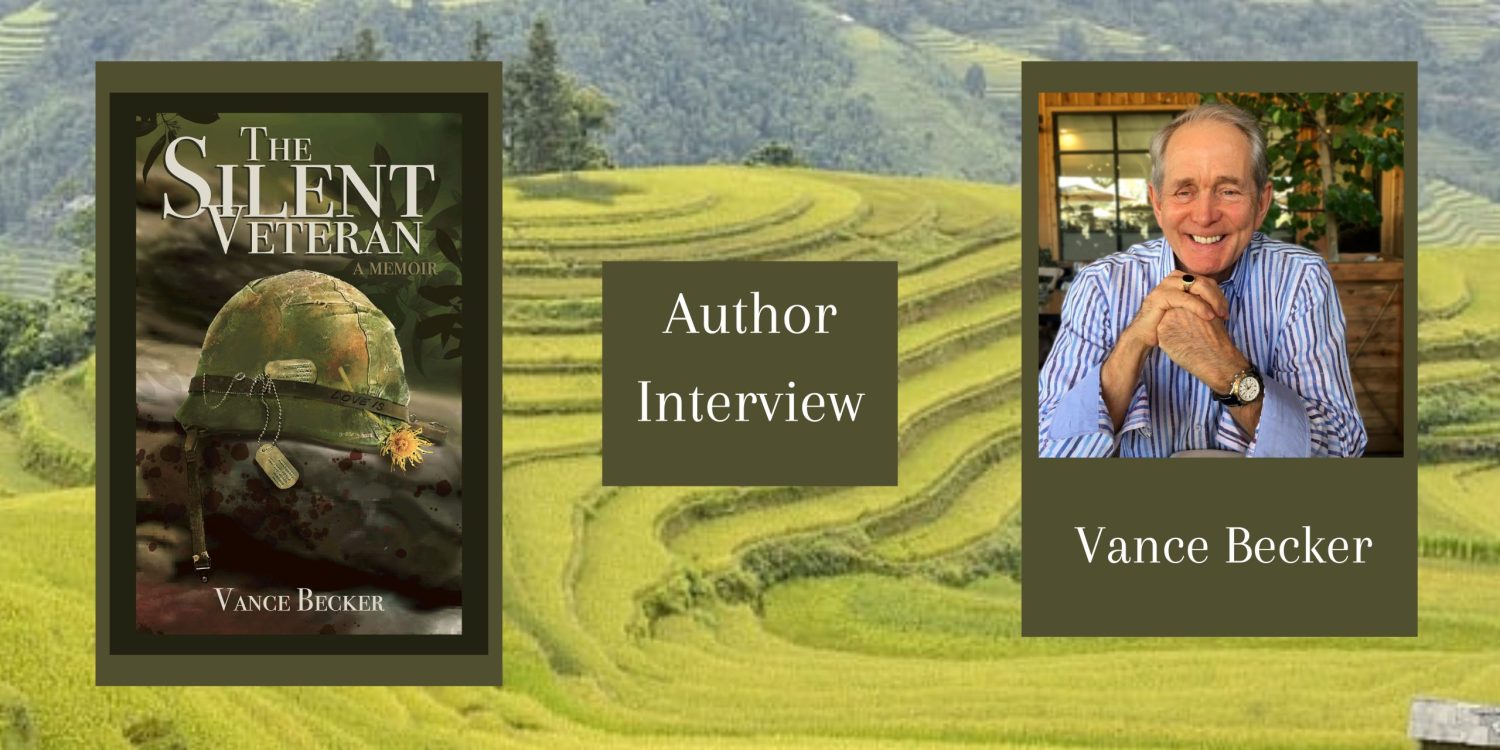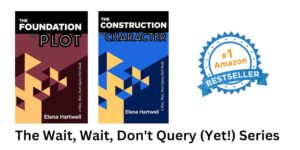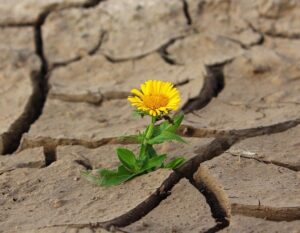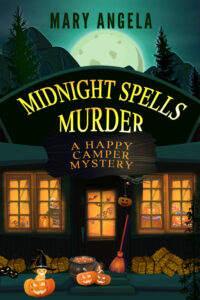The Silent Veteran: A Memoir by Vance Becker
Author Interview + Book & Author Info
Don’t miss any author interviews. Click the link here.
The Silent Veteran
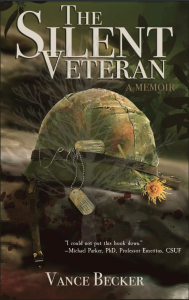 In 1967, Vance Becker fears his younger brother will die in Vietnam. Unable to live with that premonition, he relinquishes his student deferment and is drafted and sent overseas, ensuring his younger brother’s safety. Assigned to a combat unit in the 101st Airborne, Becker leads patrols into firefights and battles throughout the hills and valleys of Phu Bai and faces the stark reality of war. While he forges meaningful relationships with his platoon, he struggles to maintain relationships back home.
In 1967, Vance Becker fears his younger brother will die in Vietnam. Unable to live with that premonition, he relinquishes his student deferment and is drafted and sent overseas, ensuring his younger brother’s safety. Assigned to a combat unit in the 101st Airborne, Becker leads patrols into firefights and battles throughout the hills and valleys of Phu Bai and faces the stark reality of war. While he forges meaningful relationships with his platoon, he struggles to maintain relationships back home.
The psychological destruction of fighting an unethical, immoral war has far-reaching consequences. Decades later, like millions of other veterans, Becker is haunted by detachment, distrust, and shame. The Silent Veteran details his journey through post-traumatic stress to find transcendence in education and a career in psychology, which pulls him into a rewarding and meaningful life with those he loves.
To purchase The Silent Veteran, click on the following links: Amazon, Barnes and Noble, and IndieBound.
Interview with Vance Becker, author of The Silent Veteran
The Silent Veteran was several years in the writing. What compelled you to finally tell your story, and what was that journey like?
Good question. As I wrote in the introduction, I didn’t want this story to come out. It wasn’t a story I was proud of. Serving in Vietnam left me filled with shame and self-loathing. It was a war we did not belong in, and I certainly didn’t belong in it. It went against everything I believed in. Yet, there I was in the middle of it, as deep as you can get.
As I wrote, after my brother’s death and my retirement began, the quiet days of my seventh decade pulled images of Vietnam from thin air. Essentially, they had been repressed all these years. The old yet fresh memories awaken me with nightmares of combat, orphaned children, dead soldiers, and dying voices crying out from the dark. After all these years, I was again filled with shame and guilt, which haunted me deeper.
After fifty years, the truth pushed itself out. It wanted to record the memories and pull fragmented pieces forward to the present into a cohesive whole. The story had its own voice and yearned to push itself out of the darkness of shame into the bright sunlight, hoping for respectability.
The journey of writing was painful, disturbing, and difficult. Digging into it stimulated sleeping nightmares and evoked disturbing, intrusive, unwanted images. Self-loathing intensified. Yet, in the end, clarity, cohesion, and intelligibility finally emerged as these memories were recalled, collated, and integrated. It was satisfying and brought me full circle.
The Silent Veteran takes us back to the Vietnam War and the experiences of being a soldier on the ground. What aspects of your individual story also make this a universal story?
War is universal, but no sane person wants it. I wanted absolutely nothing to do with war, especially this one. Young men my age couldn’t help but be affected by its overwhelming impact on our lives. Many, like me, thought it was the biggest mistake in our generation. I believed I understood its history and geopolitics, and how wrong it was for our country to be involved in it.
As a student, I studied the universality of war dating back to the Ancient Greeks. Once in it, I saw my platoon as a tiny band of soldiers caught in a struggle of our time. From the inside, it was no different from the Greek Wars, the War of Independence, the Civil War, WWI, WWII, Korea, or any other war. We were caught in the daily struggle of staying alive, crawling through the mud of southeast Asia. Others had crawled through the trenches of Europe. It was essentially the same for soldiers of all ages. War was bigger than us, our platoon, our country, and our small, insignificant lives.
I tried to make sense of senselessness and reasoned that combat brings an unspoken universal allegiance to warriors from all wars, a private brotherhood, and an intimate knowledge dating back across generations and continents. I imagined there was a silent code of dignity, honor, and consciousness bonding all combat warriors throughout the ages together across every world and all wars.
I instinctively identified with Hoplites, soldier citizens, from Ancient Greece and their combatants, the patriots and the redcoats of America’s Revolutionary War, brothers and fathers from the south and north of the Civil War, veterans from both sides of WWI, WWII, Korea, and every war you can think of.
Now, today, fifty years later, watching or hearing even minor war scenes evokes an inside perspective, an effort to see, hear, smell, and sense what is not shown. I watch with immeasurable, unforgiving hypervigilance. This overarousal lingers long after the scene has passed.
I described the universal feeling inside the experience of lugging a rucksack full of essential life-saving supplies, food, water, ammo, and grenades, looking for trouble, searching for the enemy, and fear of being killed or grotesquely maimed at any moment. I described the lengthy aftermath of the combat experiences of soldiers from many wars I interviewed during my career as a psychologist, soldiers who served in WWII, Korea, Vietnam, Iraq, Afghanistan, and other less-known conflicts.
Despite all our differences, I continue to feel a private bond with veterans, especially combat veterans I don’t know and will never meet. Perhaps it is part of my unconscious search to find missing pieces of myself; fragments are stuck between here and the hills of Phu Bai. Small symbols like a hat, a rifle, a sandbag, or bits of a conversation bring pieces of that fragmented history back to life, for me, from southeast Asia; for others, Europe, Mesopotamia, or more vivid distant memory worlds. I think that may be universal.
The Silent Veteran is an intense and profoundly poignant memoir. What has been the hardest or scariest part about releasing such an intimate portrayal of your experiences?
The most challenging part of writing is openly acknowledging to myself and others that I deeply violated my personal ethics and morals. Participating in a war I didn’t believe in was, and still is, profoundly disturbing. I imagined myself living a long life with integrity and honesty, like Socrates, if you will. The Vietnam War changed that essential belief foundation and showed me that I was a much lesser person than my ideal self. Back then, my life circumstances showed me that I didn’t have the courage, will, or personal fortitude to take a strong ethical stand. I made an easier, less principled choice. I went to war. Not my best ethical moment.
I have tried to make up for it by living a purposeful and meaningful life, but the universe teaches us that sometimes our efforts are insufficient. The nightmares and intrusive memories keep the instruction alive. Some lessons are learned through physical diseases, heart disease, and cancer that will inevitably shorten my lifespan, the lingering byproducts of Vietnam’s Agent Orange.
If you could help nonveterans understand one thing about the experience of being a combat veteran, what would that be?
I wrote about the universal experience of being in a firefight. The feelings are like no other, as I wrote; the mind races, adrenaline pumps, neurons fire, heart pounds, muscles taut, and extreme emotions cram into the body all at once. Each firefight brings a different level of intensity, fear, and vigilance. The feelings seem to crawl from the belly of the brawl, angst deep from the guts where fear begins, into the pumping bloodstream, through the taut arms and legs, tightened tendons, and flexed muscles, outward to the goosed-bumped skin and quivering flesh and reverberate back and forth in the brain’s survival center. The vigilance begins before the first round is squeezed and continues long past the last spent munitions.
Then it’s over. The noise stops. The body revs on overdrive and tries to normalize. An intense quiet, an eerie silence, seeps through the haze of smoke and smells of the battlefield. The din is followed by cautious glances to take in the damage. Who were the casualties? Was anyone killed? Anyone wounded? Was everybody okay, whole?
In a furtive search, you see muddied, cautiously guarded, wary, alert faces emerge from camouflaged hidden spaces, big eyes searching the terrain, bodies vigilant, nostrils sucking air, hands gripping weapons, clinging to the living moment, looking for friendlies. No deaths. No serious wounds. No casualties.
Then, a flood of relief, reprieve, joy, exhilaration, even jubilation. Jubilation is followed by renewed profound closeness, deepened bonds, and proud, exuberant faces breaking into smiles, laughter, and gleefulness. The emotions shift so fast. We survived! Hallelujah!
Each firefight presents a similar sequence of extreme and intense emotions. The emotions vary depending on the casualties.
This pattern repeats itself with each firefight of the combat soldier, explicitly deepening their bonds with others who survived the same battle. Afterward, the personal internal anguish of the firefight lingers indelibly privately, a scorched memory burned inside each soldier’s sentience. The severity, intimacy, and macabre of casualties mark the burn. The burns are intermingled with monotony, fatigue, sleeplessness, fear, hunger, and thirst, reaching fresh into the mind decades later. The embers are re-inflamed with the slightest inference; sometimes, an innocent, unsuspecting event, like witnessing the tears of a loved grandchild, will evoke recollections of those long-forgotten seared moments.
If you could help combat veterans understand one thing about integrating their experiences into their non-combat life, what would that be?
What helped me most was finding purpose and meaning outside of myself, something bigger than me. I found it in education and a meaningful career in psychology.
Another profoundly important factor was finding trustworthy people and trusting them, in small bites at first, then more as time passed. Finding love and being loved was paramount. Self-understanding and acceptance is an ongoing work in progress.
What are you working on now?
I’ve always wanted to write about the qualities that make up enduring long-term relationships, primarily marriages. Helping couples maintain them was a central part of my psychological practice for so many years. Many books, particularly testimonials by self-described experts, promote various religious and personal perspectives on successful relationships.
But the truth be told, there are no solid, reliable, practical books on the subject. I think one is sorely needed. I’m toying with writing that book.
Words of Wisdom for Aspiring Writers:
I have no wisdom for aspiring writers that hasn’t been already said by the best. Perhaps the simple suggestion of writing down ideas, that occur seemingly out of nowhere, when they happen is a piece of good advice most aspiring writers would find helpful. Before they slip back into the nether where they came. Once an idea slips, retrieving it in its fresh, original form is difficult.
Vance Becker, author of The Silent Veteran
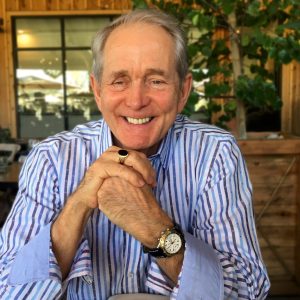 Vance Becker was raised in Central Oregon and Marin County in the San Francisco Bay Area.
Vance Becker was raised in Central Oregon and Marin County in the San Francisco Bay Area.
After five semesters at the College of Marin, he transferred to Cal Poly, Pomona, for a few quarters before being drafted.
He served two years in the Army, one with the 101st Airborne in Vietnam. After discharge, he moved to Fullerton, California, to finish college.
He graduated with a degree in psychology, completed a master’s in counseling, and a doctorate in psychology.
He became a licensed psychologist and served as a clinical psychologist with a multidimensional clientele for the next forty years in Orange County, California. He retired and moved to the Pacific Northwest, where he lives with his wife and oldest granddaughter.
To find out more about Vance, you can follow him on Facebook and Instagram.
Elena Taylor/Elena Hartwell
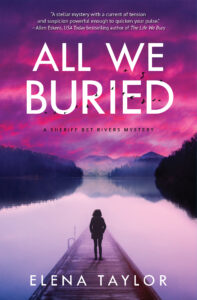
All We Buried, available now in print, e-book, and audio.
Silver Falchion Award Finalist, Best Investigator
Foreword INDIE Award Finalist, Best Mystery

